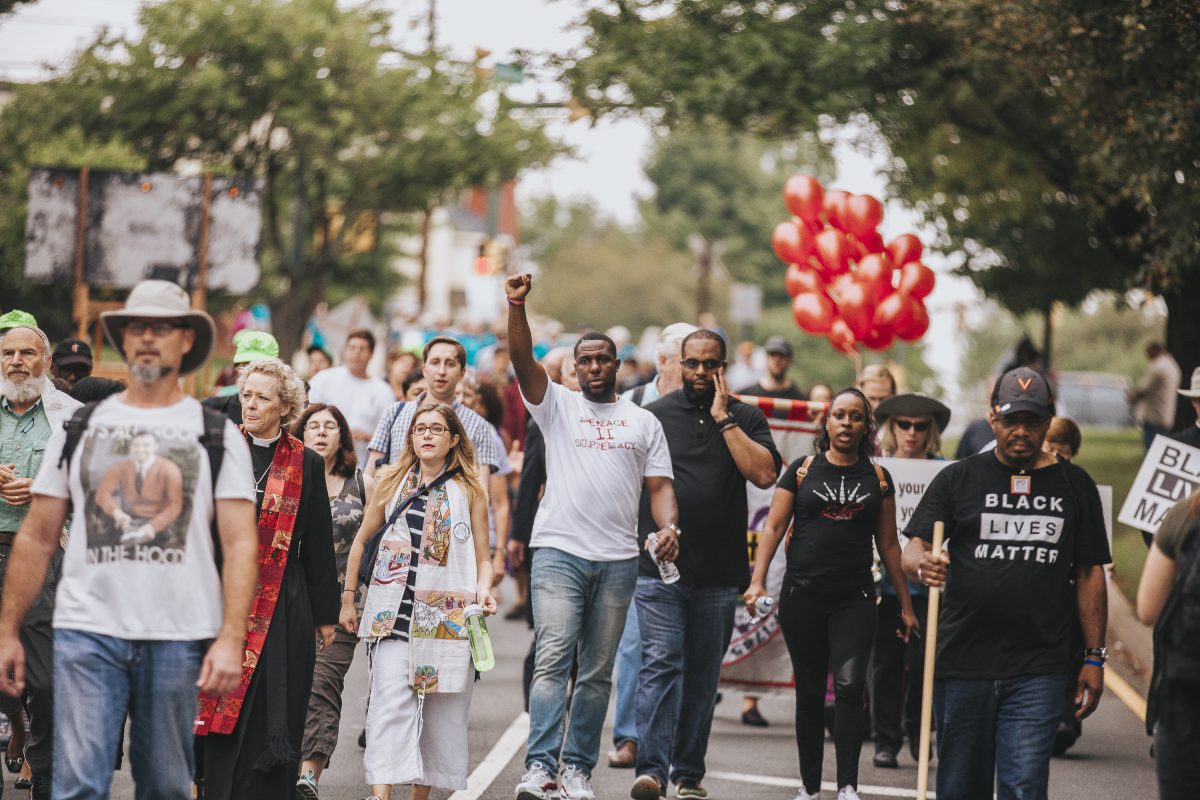Since August 11 and 12, 2017, Charlottesville has become a national political talking point. With the seven-year anniversary of A12 just around the corner, discussion of Charlottesville continues to be deployed by both national media and political campaigns, especially in the 2024 presidential election.
“We are living through a battle for the soul of this nation,” wrote President Joe Biden in an op ed for The Atlantic on August 27, 2017. This statement would go on to define Biden’s 2020 presidential campaign, which centered on defending democracy by defeating then-President Donald Trump’s bid for reelection.
“Aside from January 6, Charlottesville 2017 may be the most concrete image the Democrats have in illustrating the idea of ‘threats to democracy,’” said Sabato’s Crystal Ball Associate Editor Miles Coleman in a comment via email.
During the June 27, 2024, presidential debate, Biden once again mentioned Charlottesville as his impetus for running and condemned comments made by Trump after A12.
While Trump disputed media interpretations of the comment, he did say there were “very fine people on both sides” but went on to clarify he condemned neo-Nazis and white nationalists “totally” during the infamous August 15, 2017, press conference. He drew comparisons between right-wing extremists and counterprotesters and has more recently called the events of A12 a “peanut” in comparison to “anti-Israel protests” in April.
Biden has since dropped his bid for reelection, but upholding democracy continues to be a central theme for Democratic presidential nominee Kamala Harris.
The vice president has not directly discussed the events of A12 during her current campaign, but she has emphasized the importance of opposing anti-democratic policies like those proposed in Project 2025—a more than 900-page-long conservative agenda that includes policy proposals that massively increase the powers of the presidency and reduce checks and balances. (Trump has said he does not support Project 2025, but a significant number of officials from his former administration was involved in the creation of the policy plan.)
“At this moment, we face a choice between two visions for our nation: one focused on the future and the other on the past,” shared Harris on X/Twitter on August 2. “With your support, I am fighting for our nation’s future.”
Beyond Harris, the National Democratic Party has made the protection of democracy a major part of its platform and will likely continue to use “Charlottesville” as a shorthand for A12 in the coming months.
“As long as the Republican Party is dominated by Trumpism—which seems likely to be the case until the man literally drops dead, and probably afterwards too—pro-Democratic groups will probably suggest that Trump’s sympathy, or at least his indifference, towards the white supremacists is evidence of a growing illiberal trend within the GOP,” said Coleman.
On the Republican side, discussion of Charlottesville has focused on assertions that Trump’s “both sides” comment was not accurately reported and that left-leaning media have intentionally misrepresented the former president and his allies. A recent op ed shared in The Washington Times highlights how right-leaning media use Charlottesville as an example of media manipulation.a
“Newly minted vice presidential nominee J.D. Vance just had his Charlottesville moment and again the public is getting played,” said Newsmax host Tom Basile in the August 3 article. “We must appreciate [that] those telling us marriage and family don’t really matter are the same ones who told us Donald Trump is Hitler, President Biden was fit to serve, Ms. Harris had nothing to do with the open border, having boys in girls’ locker rooms is just fine, and J.D. Vance is weird.”
